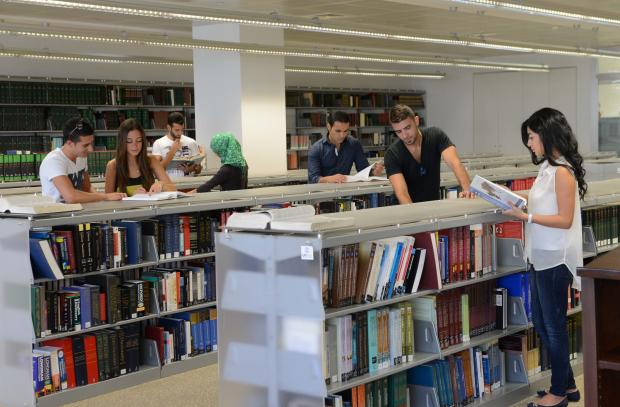Furnishing the Future
ASHA grants provide LAU with equipment, furniture to enhance student life
LAU is always looking for ways to enhance the student experience. Besides delivering innovative and challenging degree programs, the university seeks to ensure that its facilities and physical surroundings help nurture student talent. With technology evolving on an almost daily basis, however, the needs of the LAU community are constantly changing.
Alumni and donors play an essential part in helping the university keep pace with those evolving needs. ASHA, a unit within the United States Agency for International Development (USAID), has been a faithful supporter of LAU’s teaching and research facilities for many years.
Otherwise known as American Schools and Hospitals Abroad, ASHA supports American education institutions and hospitals outside the United States, as its name suggests. Its longstanding support for LAU has empowered the university to better serve student and faculty needs with the latest technology and equipment.
“LAU’s relationship with ASHA is one built on trust and partnership,” said Dr. Sonia Hajjar, assistant vice president for finance – Budget and Grants. “Their support not only enables LAU to provide state-of-the-art facilities but supports the university’s commitment to ongoing distinction in teaching and research.”
Over the course of many years, ASHA grants have provided equipment for everything from 3D printers to sophisticated engineering machinery or wireless technology.
“The facilities at LAU, such as the labs, machines and equipment, have been extremely valuable in helping me pursue my engineering degree,” said student Carlyn Khoury.
As the intellectual hub of the Beirut campus, the Riyad Nassar library is intended to inspire and perpetuate academic curiosity. Through ASHA, the library has become an even more user-friendly space with modern furniture including swivel chairs, photocopiers, compact shelving units and workstations. ASHA grants have also enabled LAU to create 63 smart classrooms, making it a national leader in high-tech classroom education.
The university’s health science majors have also greatly benefitted: “Through the ASHA grant, LAU has been able to provide students with the best simulation models,” said Dr. Sola Aoun, associate professor and assistant dean for clinical affairs. With the grant, LAU acquired iStan, one of the most advanced simulation human mannequins in the world. One of a kind in Lebanon, the iStan mannequin is a crucial training tool for LAU’s medical, nursing, nutrition and pharmacy students. “Simulation is central to education in the health sciences and enables students to bridge the gap between theory and practice,” said Aoun. Pharmacy student Caroline Dernigoghossian concurred: “Simulation exercises allow us to manage the case of the patient on our own. It is very beneficial training since it encourages students to start using their own clinical judgment from early on in their degree programs.”
LAU is currently halfway through a two-year ASHA grant worth $900,000, which will be used to purchase equipment like computers, lecterns and projectors. “LAU is proud of the facilities it has been able to offer students through the generosity of the American people,” said Dr. Elie Badr, assistant provost for Academic Programs, assistant to the president and strategy officer for External Projects and Related Entities.
